IRF
IRF Uppsala
RPF programme
IRF-U Staff
Seminars
Courses
PhD studies
Examensarbete
Workshops
Cluster
...EFW
...Quicklook
Cassini
Rosetta
Solar Orbiter
Intranet
| INSTITUTET FÖR RYMDFYSIK | UPPSALA |
 |
|
| Swedish Institute of Space Physics | (59°50.272′N, 17°38.786′E) |



SRS 2023
Svenska Rymdforskares Samarbetsgrupp
The SRS 2023 took place in Uppsala on March 14-15, 2023. The meeting covers different areas of space sciences carried out at Swedish institutes. The format includes invited talks, as well as posters which were displayed in a special poster session, and could be viewed as well as during coffee and lunch breaks. This year we had a new session in the programme with discussions about funding strategies in Sweden. The programme below has links to some of the presented slides, especially SNSA's funding strategy and the information_by the representatives of the SNSA.
For questions and general matters about SRS please contact Maria Hamrin, at email <Maria.Hamrin@space.umu.se>. For further information about the 2023 meeting please see below or contact Stephan Buchert <scb@irfu.se>.
Venue
The venue was the Sonja
Lyttkens lecture hall (Å101121) in house 10 ("New
Ångström") of the Ångström
Laboratory of the Uppsala University.

WiFi:
Eduroam will work. If not available, pse see the UU WiFI 24h access for guests. To receive a code you need to provide the Swedish (or EU?) number of a mobile phone. If needed, ask another attendant for help with receiving the code, it does not have to be your phone.
Programme
An outline of
programme with approximate timings is
- March
14, Tuesday, 13.15-17.30:
- 13.15-13.20: Practical Information
- 13.20-13.25: Maria Hamrin, Umeå
University, Introduction to SRS
- 13.25-14.15: Astrobiology (chaired by Natuschka Lee)
- Dr Gavin Kenny, Natural History Museum Stockholm:
"Understanding the role of impact cratering in Earth's evolution through state-of-the-art geochronology"
- Dr Erik Persson, Lund University
"Space humanities: the role of humanities for space exploration"
- 14.15-15.05: Astronomy (chaired by Felix Ryde)
- Dr Jens Melinder, Stockholms University
- Dr Karin Lind, Stockholms University
- 15.05-15.35: Coffee break, Leg stretching
- 15.35-16.25: Atmospheric Physics (chaired by Kristell Perot)
- Doc. Dr Linda Megner, Stockholm
University, Department
of Meteorology
"The MATS satellite: A glimpse of the first data"
- Dr Simon Pfreundschuh, Chalmers, Department of Space, Earth and Environment
"Advancing atmospheric remote sensing using machine learning"
- 16.25-17.15: Micro-Gravity and Life Sciences (chaired by Rodrigo Fernandez-Gonzalo)
- Dr Anton Ahlbäck, Örebro University Hospital:
"Space analogs and ultrasound on Mars"
- Dr Stefania Giacomello, KTH Royal Institute of Technology, Science for Life Laboratory, Department of Gene Technology:
"Spaceflight impact on mouse brain and heart revealed by spatial transcriptomics"
- March
15, Wednesday, 08.45-15.00:
- 08.45-09.35: Solar System (chaired by Mats Holmström)
- Dr Sabrina Tigik Ferrao, IRF:
"Simultaneous occurrences of whistler and Langmuir waves in the near-Sun solar wind"
- Prof. Stas Barabash, IRF:
"Jovian moons-magnetosphere interactions: The main goal for the Swedish instruments onboard JUICE"
- 09.35-10.25: Space Plasma (chaired by Anders Tjulin)
- Dr. Andrew Dimmock, IRF:
"Solar wind structures and their interaction with the Earth's magnetosphere: implications for space weather"
- Dr. Hayley Williamson, IRF:
"Understanding the interaction between a comet and the solar wind using Rosetta ion data"
- 10.25-10.55: Coffee break, Leg stretching
- 10.55-11.45: Earth Observations (chaired by Johan Fransson)
- Dr. Puzhao Zhang, KTH Royal Institute of Technology, Department of Urban Planning and Environment
"Multi-source Earth Observation Big Data for Wildfire Monitoring using Deep Learning"
- Dr. Perola Olsson, Lund University, Department of Physical Geography and Ecosystem Science
"Hunting insects from space - remote sensing of forest disturbances"
- 11.45-12.55: Lunch break
- The following part of the programme was
also via Zoom:
- 12.57-13.15: Quick talks (3x6 min,
chaired by Maria Hamrin)
- Linda Megner, Stockholm University,
Atmospheric gravity waves ‐ Bridging the
gaps
- Lina Eklund, Lund University, Pyrogeography
in Conflict Contexts: Satellite Remote
Sensing of Vegetation Fires in the Middle East (via
zoom)
- Cecilia Norgren, IRF, Plasma
heating and acceleration in reconnecting
systems
- 13.15-14.00: Discussion on funding,
strategies, SNSA and VR, to prepare pse read this paper.
The representatives of SNSA (Vilgot Claesson, Kristine
Dannenberg, Per Magnusson, Kristell Pérot, Elisabet
Sandelin) presented their funding
strategy.
- 14.00-15.00: SNSA Information
- Maya Mishra, Umeå University, et al., "Applications of One Health Principles to Spaceflight"
- Axel Hagermann, Stefan Schröder & the CALICO
consortium. "CALICO - Exploring an Ocean World"
- Christer Persson, Fuglesang Space Center, "The Fuglesang Space Center"
- Eleanor May, Chalmers, et al., "Preparations for the Ice Cloud Imager (ICI) operational phase"
- Alexander Mustill, Lund University, "Galactic phase space kinematics of transiting exoplanet host stars"
- Judith Korth, Lund Observatory "Hot Jupiters and their surroundings"
- Oliver Herbort (Uni Vienna) et al. "Atmospheres of Rocky Exoplanets - Implying surface conditions from clouds"
- Jonathan C. Tan (Chalmers) et al., Atmospheric Remote-sensing Infrared Exoplanet Large-survey
- Niloofar Khorshid (Chalmers), Planets and
their formations in the era of ARIEL
- G. Borderes Motta, IRF, et al., "On the Tracking of
Satellites Using Auroral Images"
- Judit Pérez-Coll Jiménez, KTH, et al., "Analysis of multi-point Probe Measurement obtained by SPIDER-2 Sounding Rocket in the Auroral E-region during a Pulsating Aurora Event"
- Sebastián Rojas Mata, Gabriella Stenberg Wieser, Yoshifumi Futaana, IRF Kiruna, "Exploring Plasma Asymmetries in Venus’ Magnetosheath"
- Joshua Dreyer, IRF, et al. "Utilising light ion measurements to derive mixing ratios of heavier neutral species in Saturn's ionosphere"
WiFi:
Eduroam will work. If not available, pse see the UU WiFI 24h access for guests. To receive a code you need to provide the Swedish (or EU?) number of a mobile phone. If needed, ask another attendant for help with receiving the code, it does not have to be your phone.
This announcement was last updated on March 15, 2023.